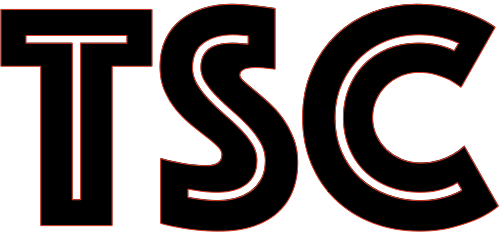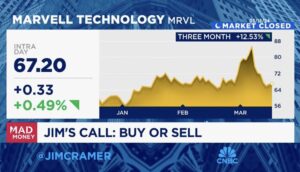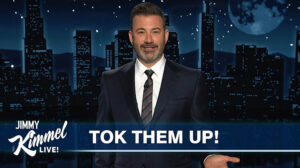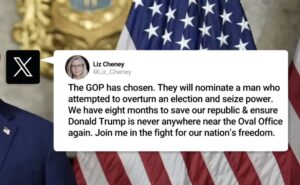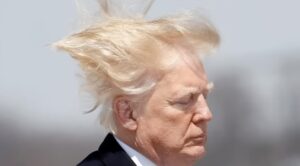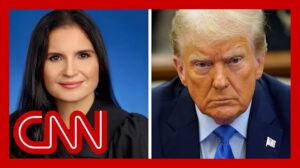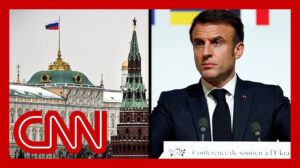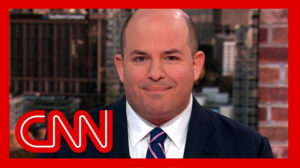
When you make purchases through our links we may earn a small commission.

Photo Credit: Dainis Graveris
Put It On Your Wall: CanvasOnDemand.com
Help us spread the word about policies that are good for all Americans for only $1.99 a month – every dollar helps.
🇺🇸
Don’t forget to ‘Like’ our social issues Facebook page, Partisan For The People, where you can comment on – and share – all our latest posts.
In an era dominated by information overload, the need for fact-checking has become more crucial than ever, particularly in the realm of politics. With the rise of social media and the rapid dissemination of news, misinformation can spread like wildfire, influencing public opinion and shaping political landscapes. This blog post aims to delve into the significance of fact-checking in politics and explore some of the most popular topics that have been subject to scrutiny.
The Latest Fact-Checks

IRS Has Not Introduced Immigrant Housing Tax Incentive, Contrary to Posts
The IRS has not introduced a tax incentive for U.S. families to house immigrants in exchange for labor. A bogus claim that was originally posted as satire is circulating on social media without a disclaimer.
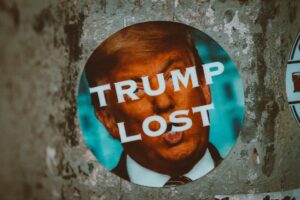
Trump Repeats Many Claims in Fox News Town Hall
In a Feb. 20 town hall in South Carolina that aired on Fox News, days before the state’s Republican primary, former President Donald Trump repeated several false and misleading claims we’ve fact-checked before.

Unraveling Misinformation About Bipartisan Immigration Bill
Even before a bipartisan group of senators unveiled the text of a foreign aid and immigration overhaul bill on Feb. 4, it faced significant opposition from former President Donald Trump and other Republican leaders. We’ll explain what was in the legislation and the facts on two popular talking points.

Students in Israel Don’t Carry Guns to Class, Contrary to Social Media Posts
Israel has established strict measures in response to armed attacks on its schoolchildren. But social media posts falsely claim there have been “no school shootings in Israel” and use a photo to misleadingly suggest students carry weapons to class. Only guards and other specific personnel — not students — can carry arms in Israeli schools.

Trump’s Hollow Claim about ‘Inner Cities’
President Donald Trump claimed that his administration is “spending a lot of money on the inner cities.” But there has been little change in spending so far, and his first budget proposes to cut or eliminate funding for some programs that benefit cities.

IRS Has Not Introduced Immigrant Housing Tax Incentive, Contrary to Posts
The IRS has not introduced a tax incentive for U.S. families to house immigrants in exchange for labor. A bogus claim that was originally posted as satire is circulating on social media without a disclaimer.

Trump Repeats Many Claims in Fox News Town Hall
In a Feb. 20 town hall in South Carolina that aired on Fox News, days before the state’s Republican primary, former President Donald Trump repeated several false and misleading claims we’ve fact-checked before.

Unraveling Misinformation About Bipartisan Immigration Bill
Even before a bipartisan group of senators unveiled the text of a foreign aid and immigration overhaul bill on Feb. 4, it faced significant opposition from former President Donald Trump and other Republican leaders. We’ll explain what was in the legislation and the facts on two popular talking points.

Students in Israel Don’t Carry Guns to Class, Contrary to Social Media Posts
Israel has established strict measures in response to armed attacks on its schoolchildren. But social media posts falsely claim there have been “no school shootings in Israel” and use a photo to misleadingly suggest students carry weapons to class. Only guards and other specific personnel — not students — can carry arms in Israeli schools.

Trump’s Hollow Claim about ‘Inner Cities’
President Donald Trump claimed that his administration is “spending a lot of money on the inner cities.” But there has been little change in spending so far, and his first budget proposes to cut or eliminate funding for some programs that benefit cities.

Illinois School District’s Shift to Equitable Grading Is Misrepresented Online
A school district in Illinois is considering implementing “equitable grading,” which would focus more on evaluating student learning than class participation or homework. A conservative website misrepresented the idea as a “race-based grading system” in a story that went viral. The equitable grading system would apply to all students.

Gun violence prevention and gun safety get a boost
After the 2022 massacre of 19 children and two teachers at an elementary school in Uvalde, Texas, the Biden administration called for stricter gun legislation. Uvalde spurred the first significant gun safety law in 30 years, which Biden signed in June of 2022, and the president took further action on his own.

Sorting Out the Partisan Tax Spin on Inflation Reduction Act
Both political parties are spinning the facts on whether the Democrats’ Inflation Reduction Act would raise taxes.

Trump Wrong on U.S. Agriculture Exports to China
In announcing “phase one” of a tentative trade deal with China, President Donald Trump wrongly stated that the “all-time high” for U.S. agricultural exports to China was “$16 or $17 billion.” Actually, it was nearly $26 billion in 2012.

Trump Exaggerates China Trade Impact on Farmers
At his rally in Iowa, President Donald Trump falsely claimed that the new trade agreement with China “will boost American agriculture by $50 billion every year.” China agreed to increase agricultural purchases by $12.5 billion this year and $19.5 billion next year compared with 2017 levels.

Illinois School District’s Shift to Equitable Grading Is Misrepresented Online
A school district in Illinois is considering implementing “equitable grading,” which would focus more on evaluating student learning than class participation or homework. A conservative website misrepresented the idea as a “race-based grading system” in a story that went viral. The equitable grading system would apply to all students.

Gun violence prevention and gun safety get a boost
After the 2022 massacre of 19 children and two teachers at an elementary school in Uvalde, Texas, the Biden administration called for stricter gun legislation. Uvalde spurred the first significant gun safety law in 30 years, which Biden signed in June of 2022, and the president took further action on his own.

Sorting Out the Partisan Tax Spin on Inflation Reduction Act
Both political parties are spinning the facts on whether the Democrats’ Inflation Reduction Act would raise taxes.

Trump Wrong on U.S. Agriculture Exports to China
In announcing “phase one” of a tentative trade deal with China, President Donald Trump wrongly stated that the “all-time high” for U.S. agricultural exports to China was “$16 or $17 billion.” Actually, it was nearly $26 billion in 2012.

Trump Exaggerates China Trade Impact on Farmers
At his rally in Iowa, President Donald Trump falsely claimed that the new trade agreement with China “will boost American agriculture by $50 billion every year.” China agreed to increase agricultural purchases by $12.5 billion this year and $19.5 billion next year compared with 2017 levels.

Unraveling Misinformation About Bipartisan Immigration Bill
Even before a bipartisan group of senators unveiled the text of a foreign aid and immigration overhaul bill on Feb. 4, it faced significant opposition from former President Donald Trump and other Republican leaders. We’ll explain what was in the legislation and the facts on two popular talking points.

🚨Fake News Alert🚨 Viral Posts Misuse Rat Study to Make Unfounded Claims About COVID-19 Vaccines and Autism
COVID-19 vaccination during pregnancy benefits both mother and baby. Side effects are generally mild, and studies don’t show negative effects on the baby. A criticized study that gave COVID-19 vaccines to pregnant rats doesn’t show that vaccines cause autism or that people shouldn’t get COVID-19 vaccines, contrary to claims.

Fact-Checks: Faulty Science Underpins Florida Surgeon General’s Call to Halt mRNA COVID-19 Vaccination
The COVID-19 vaccines have saved millions of lives, according to multiple studies. Despite this, Florida Surgeon General Dr. Joseph Ladapo issued a statement on Jan. 3 calling for a halt in the use of mRNA COVID-19 vaccines, made by Pfizer/BioNTech and Moderna.
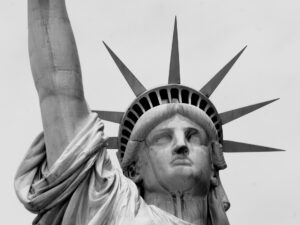
Debunking Bogus Claim of ‘Bipartisan’ Support for Mayorkas Impeachment Hearings
Legislators often tout support for some piece of legislation as bipartisan, even if only a few members from the opposing party back it. But in an announcement about committee hearings to investigate the possible impeachment of Homeland Security Secretary Alejandro Mayorkas, one Republican is taking claims of bipartisanship to absurd new lengths.

Fake News Alert: Posts Use Transposed Mugshot of Epstein to Target Kamala Harris
A federal judge has ordered the release of documents that will identify scores of accused sex-trafficker Jeffrey Epstein’s associates. The order has led many social media users to share a digitally manipulated image that purports to show Vice President Kamala Harris posing with Epstein. The original photo showed Harris with her husband, Douglas Emhoff.

Unraveling Misinformation About Bipartisan Immigration Bill
Even before a bipartisan group of senators unveiled the text of a foreign aid and immigration overhaul bill on Feb. 4, it faced significant opposition from former President Donald Trump and other Republican leaders. We’ll explain what was in the legislation and the facts on two popular talking points.

🚨Fake News Alert🚨 Viral Posts Misuse Rat Study to Make Unfounded Claims About COVID-19 Vaccines and Autism
COVID-19 vaccination during pregnancy benefits both mother and baby. Side effects are generally mild, and studies don’t show negative effects on the baby. A criticized study that gave COVID-19 vaccines to pregnant rats doesn’t show that vaccines cause autism or that people shouldn’t get COVID-19 vaccines, contrary to claims.

Fact-Checks: Faulty Science Underpins Florida Surgeon General’s Call to Halt mRNA COVID-19 Vaccination
The COVID-19 vaccines have saved millions of lives, according to multiple studies. Despite this, Florida Surgeon General Dr. Joseph Ladapo issued a statement on Jan. 3 calling for a halt in the use of mRNA COVID-19 vaccines, made by Pfizer/BioNTech and Moderna.

Debunking Bogus Claim of ‘Bipartisan’ Support for Mayorkas Impeachment Hearings
Legislators often tout support for some piece of legislation as bipartisan, even if only a few members from the opposing party back it. But in an announcement about committee hearings to investigate the possible impeachment of Homeland Security Secretary Alejandro Mayorkas, one Republican is taking claims of bipartisanship to absurd new lengths.

Fake News Alert: Posts Use Transposed Mugshot of Epstein to Target Kamala Harris
A federal judge has ordered the release of documents that will identify scores of accused sex-trafficker Jeffrey Epstein’s associates. The order has led many social media users to share a digitally manipulated image that purports to show Vice President Kamala Harris posing with Epstein. The original photo showed Harris with her husband, Douglas Emhoff.

Biden administration opened the gates to allow illegal immigration? Republican posts misrepresent use of floodgates at Southern Border
To avoid damage from heavy rains, U.S. Customs and Border Protection officials have opened floodgates along Arizona’s border fencing during monsoon season since 2009. But social media users, including Sen. Ted Cruz, shared posts with the misleading claim that the Biden administration opened the gates “by design” to allow illegal immigration.

Navigating the Web of Politics: The Importance of Fact-Checks
Explore the intricate web of politics with a focus on fact-checking. Delve into popular topics, including claims by Donald Trump, Joe Biden, Hunter Biden, and Hillary Clinton, as fact-checkers navigate the landscape of information, ensuring transparency and accuracy in the realm of political discourse.

Fake News Alert: Trump’s Latest Election Fraud Spin
In his latest election fraud spin, former President Donald Trump falsely suggested that 3,600 criminally duplicated ballots were counted in Atlanta’s Fulton County in the 2020 presidential election. He is referring to news reported months ago about errors made during an audit — not during the official ballot count.

Daily Fact-Check: COVID-19 Vaccination During Pregnancy Is Safe, Has Multiple Benefits
Being vaccinated against COVID-19 helps protect pregnant people from severe COVID-19. When given during pregnancy, the vaccines can also reduce the risk of hospitalization from COVID-19 early in a baby’s life. A new study adds to the evidence that vaccination during pregnancy is safe for babies, contrary to social media and online claims.

Daily Fact-Check: Trump’s False Claim That U.S. Military Moving to Electric Tanks
The military is moving toward the electrification of its vehicle fleets. It’s not, as former President Donald Trump falsely claims, going “to make our great Army tanks all-electric.”

Biden administration opened the gates to allow illegal immigration? Republican posts misrepresent use of floodgates at Southern Border
To avoid damage from heavy rains, U.S. Customs and Border Protection officials have opened floodgates along Arizona’s border fencing during monsoon season since 2009. But social media users, including Sen. Ted Cruz, shared posts with the misleading claim that the Biden administration opened the gates “by design” to allow illegal immigration.

Navigating the Web of Politics: The Importance of Fact-Checks
Explore the intricate web of politics with a focus on fact-checking. Delve into popular topics, including claims by Donald Trump, Joe Biden, Hunter Biden, and Hillary Clinton, as fact-checkers navigate the landscape of information, ensuring transparency and accuracy in the realm of political discourse.

Fake News Alert: Trump’s Latest Election Fraud Spin
In his latest election fraud spin, former President Donald Trump falsely suggested that 3,600 criminally duplicated ballots were counted in Atlanta’s Fulton County in the 2020 presidential election. He is referring to news reported months ago about errors made during an audit — not during the official ballot count.

Daily Fact-Check: COVID-19 Vaccination During Pregnancy Is Safe, Has Multiple Benefits
Being vaccinated against COVID-19 helps protect pregnant people from severe COVID-19. When given during pregnancy, the vaccines can also reduce the risk of hospitalization from COVID-19 early in a baby’s life. A new study adds to the evidence that vaccination during pregnancy is safe for babies, contrary to social media and online claims.

Daily Fact-Check: Trump’s False Claim That U.S. Military Moving to Electric Tanks
The military is moving toward the electrification of its vehicle fleets. It’s not, as former President Donald Trump falsely claims, going “to make our great Army tanks all-electric.”
The Last Word
In a world inundated with information, fact-checking stands as a vital pillar in upholding the integrity of political discourse. By scrutinizing claims made by public figures, fact-checkers contribute to the creation of an informed and engaged electorate, fostering a healthier democratic process. As we navigate the complex web of politics, fact-checks serve as beacons of truth, guiding us through the maze of misinformation and shaping a more transparent political landscape.
In the delicate interplay of civil discourse and the economy, the repercussions of neglecting factual accuracy are profound. When facts are distorted, the foundation of civil discourse weakens, leading to a gradual erosion of trust in institutions and democratic processes. This erosion fosters polarization, hindering constructive dialogue and sowing discord within communities. The manipulation of information not only undermines democratic values but also poses a substantial threat to the cohesion of societies.
Simultaneously, the economic ramifications of inaccurate information are equally significant. Investor confidence, a cornerstone of stable markets, can be disrupted, leading to volatility and uncertainty. Misguided economic policies resulting from misinformation can have long-lasting effects on a nation’s economic health, impacting businesses, investments, and strategic planning. In this interconnected world, upholding the accuracy of information becomes not just a matter of truth but a vital commitment to the stability of civil discourse and the prosperity of economies.
You’ll get more articles like this – and our favorite promotional offers delivered straight to your inbox.
By submitting this form you agree to our terms and conditions. You can unsubscribe at any time.

GFYG: Try-on Halloween Costumes Ft. Mi jefa 🤭



Video: Scarlett Blahyj SHEIN TRY ON HAUL (HOLIDAY OUTFITS)
